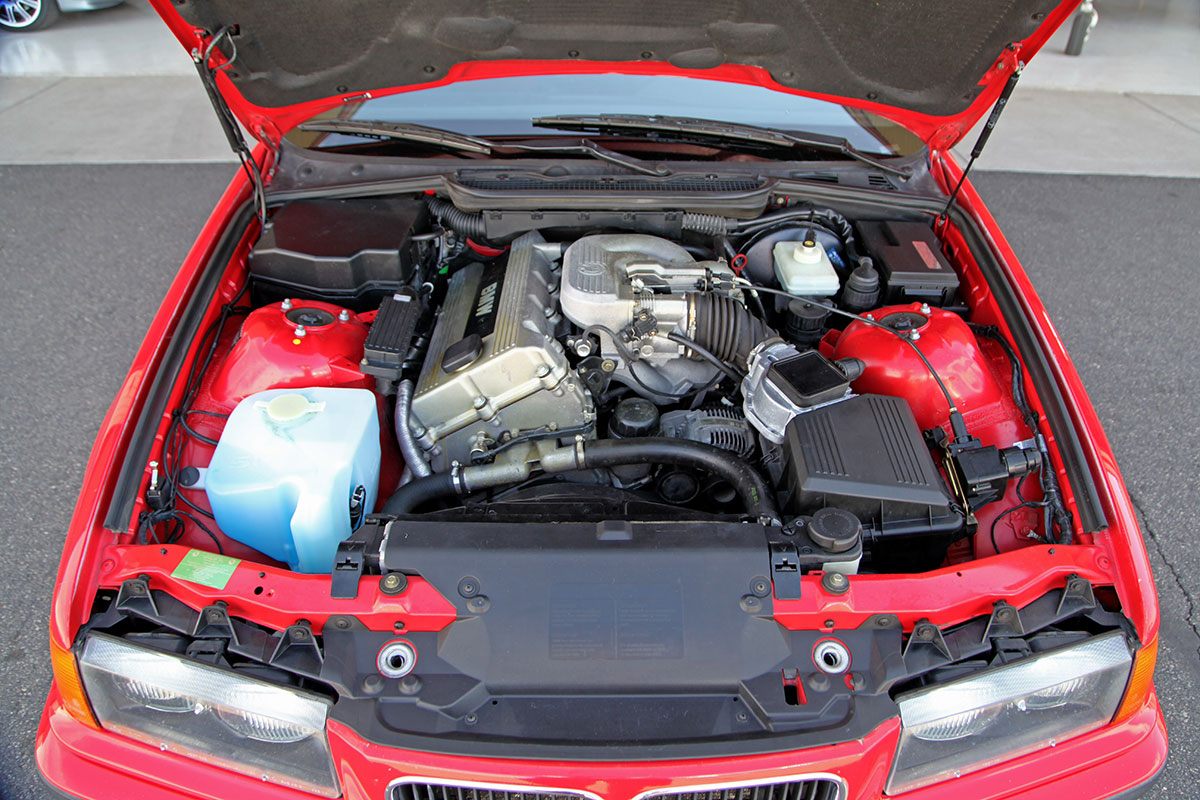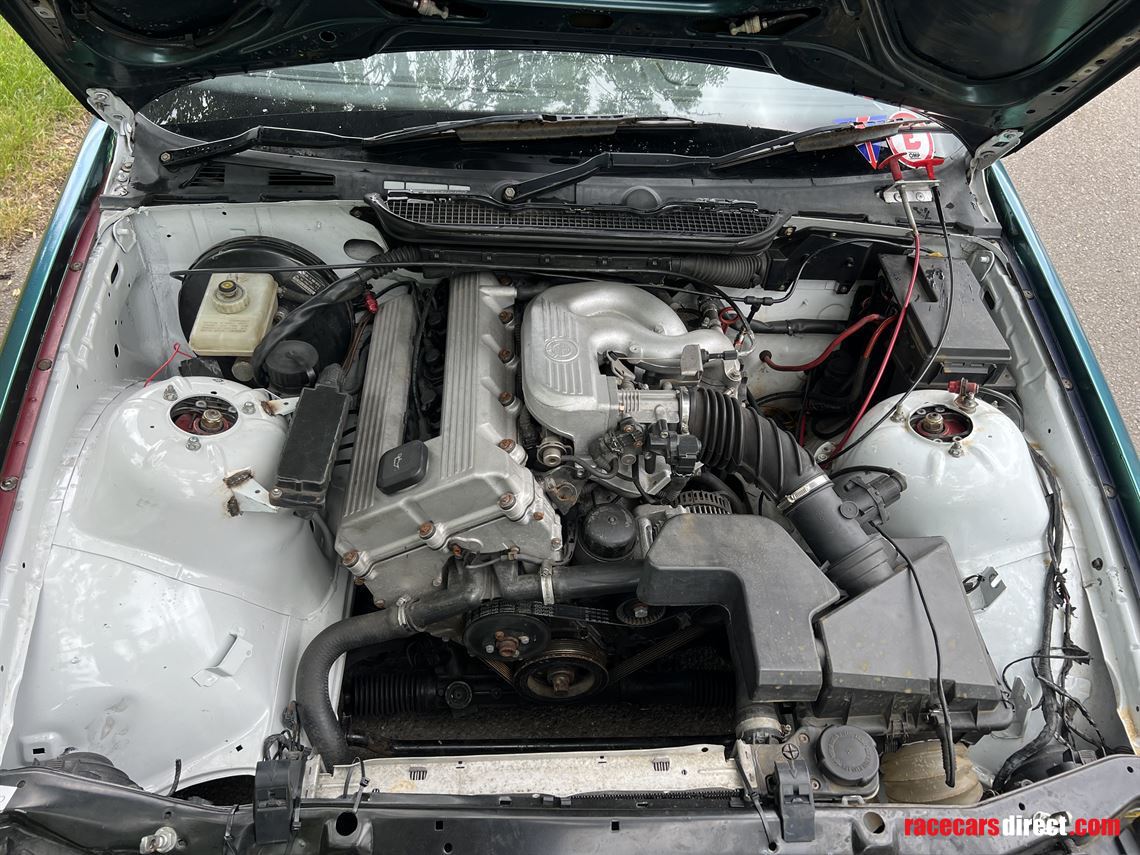Updating Your BMW 318ti: Top Mods and Enhancements
Secret Functions to Try To Find When Investing In an Engine for Automotive Applications
When considering the acquisition of an engine for automotive applications, a number of vital features necessitate careful examination to ensure ideal efficiency and capability. From power and performance abilities to sustain durability, adherence, and efficiency to discharges standards, each aspect plays an important function in figuring out the engine's viability for specific automobile needs.
Power and Performance
When selecting a vehicle engine, buyers focus on power and performance to make sure optimum driving experience and efficiency. The power output of an engine, typically determined in horsepower (HP) or kilowatts (kW), determines the velocity, full throttle, and total capabilities of a car. Higher power scores usually result in quicker acceleration and much better performance, particularly throughout overtaking or lugging hefty tons. Performance, on the other hand, includes a more comprehensive spectrum of attributes, including gas effectiveness, emissions, integrity, and total driving characteristics. A well-performing engine not only supplies power efficiently yet also operates efficiently across different rate ranges and driving problems.
Purchasers usually take into consideration the engine's torque output alongside its power ranking. Torque, determined in pound-feet (lb-ft) or Newton-meters (Nm), reflects the engine's rotational pressure, affecting the vehicle's ability to tow, climb inclines, and increase from dead stop. A balance in between power and torque is vital for achieving a flexible and responsive driving experience. Furthermore, factors such as engine variation, crossbreed, and turbocharging technologies play substantial roles in boosting both power and performance levels. Eventually, picking an engine that offers a powerful mix of power and efficiency guarantees a satisfying and effective driving experience. bmw 318ti.
Gas Effectiveness
Enhancing gas performance is a critical factor to consider for customers when assessing automobile engine alternatives. Modern engines with functions like straight gas shot, turbocharging, and variable valve timing can significantly boost gas efficiency by boosting combustion processes and reducing energy loss.

Resilience and Reliability
Accomplishing lasting efficiency and trustworthy operation is vital for consumers reviewing the toughness and dependability of automobile engines. When taking into consideration an engine for vehicle applications, sturdiness describes the engine's capacity to hold up against wear, anxiety, and extreme operating conditions over an extended period. Reliability, on the various other hand, indicates that the engine can continually do its desired function without unforeseen failures or failings.
Consumers ought to search for engines constructed with top notch products and specific design to make certain long life. Components such as bearings, crankshafts, and pistons ought to be resilient to handle the engine's power outcome without premature wear. Additionally, engines furnished with innovative cooling systems, effective lubrication, and robust purification systems have visit a tendency to display higher degrees of dependability.
Regular maintenance and adherence to supplier referrals are also critical consider protecting an engine's resilience and reliability. By following upkeep schedules, utilizing advised fluids, and resolving any problems immediately, customers can maximize the life expectancy and performance of their vehicle engines. Eventually, focusing on sturdiness and dependability in engine option can result in a much more gratifying possession experience with fewer unexpected interruptions.
Emissions Compliance
Making sure conformity with exhausts policies is an essential aspect of examining automotive engines for environmentally mindful consumers. With raising problems regarding air top quality and ecological impact, stringent discharges requirements have actually been placed in area worldwide to decrease dangerous contaminants released into the environment. When acquiring an engine for auto applications, it is vital to consider its discharges compliance to minimize the carbon impact and comply with legal requirements.
Modern engines are furnished with innovative emission control modern technologies such as catalytic converters, exhaust gas recirculation (EGR) systems, and selective catalytic reduction (SCR) to minimize damaging exhaust gases like nitrogen oxides (NOx), carbon monoxide (CARBON MONOXIDE), and hydrocarbons (HC) These systems play a crucial role in ensuring that the engine meets the defined emissions requirements and runs within permissible limits.

Cost-effectiveness
When taking into consideration vehicle engine purchases, assessing cost-effectiveness is extremely important for customers seeking both performance and worth. It includes the general costs related to maintenance, gas usage, and potential repairs over the engine's life expectancy.
One key facet of cost-effectiveness is look at this now gas effectiveness. Engines that are designed to take full advantage of gas economy can bring about substantial savings in time, specifically for individuals who drive frequently or over cross countries. Additionally, considering the accessibility and affordability of extra components and maintenance can add to the total cost-effectiveness of an engine. Ensuring that repair and maintenance are practical and accessible can stop unforeseen monetary burdens down the line.

Conclusion
In final thought, when acquiring an engine for automotive applications, it is critical to think about vital features such as power and efficiency, fuel dependability, durability and efficiency, exhausts conformity, and cost-effectiveness. These aspects are necessary in making sure that the engine satisfies the requirements of the vehicle and operates efficiently in numerous driving conditions - bmw 318ti. Making an informed decision based on these requirements will ultimately lead to a effective and effective automotive engine acquisition
From power and efficiency capabilities to sustain browse around these guys adherence, resilience, and efficiency to exhausts requirements, each aspect plays a crucial function in figuring out the engine's viability for details automobile needs. Engines made to run on alternate fuels such as electric power, crossbreed systems, or biofuels can provide improved fuel economic climate and lower exhausts compared to traditional gasoline or diesel engines. Consumers should meticulously consider the gas performance scores and innovations integrated right into automobile engines to make enlightened investing in choices that straighten with their concerns for price financial savings and sustainability.
When considering an engine for automobile applications, longevity refers to the engine's capability to stand up to wear, stress and anxiety, and harsh operating conditions over a prolonged duration.In verdict, when purchasing an engine for vehicle applications, it is essential to think about vital attributes such as power and efficiency, fuel effectiveness, resilience and integrity, discharges compliance, and cost-effectiveness.